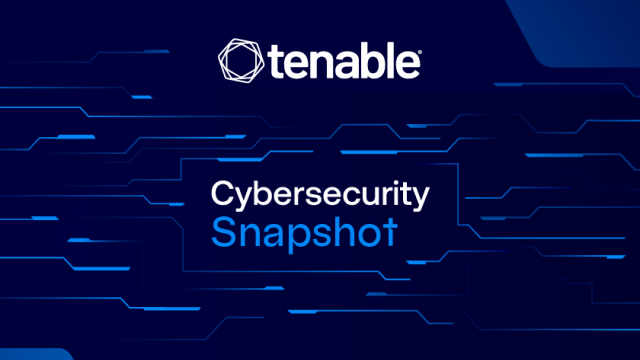Example Searches:
CVE
Threat Actors
Countries
Vendors
Severity
Known Exploited
|
CVE-2025-4555 |
Description: The web management interface of Okcat Parking Management Platform from ZONG YU has a Missing Authentication vulnerability, allowing unauthenticated remote attackers to directly access system functions. These functions include opening gates, viewing license plates and parking records, and restarting the system.
CVSS: CRITICAL (9.8) EPSS Score: 0.18%
May 12th, 2025 (27 days ago)
|

|
Description: CVE-2025-31324 impacts SAP NetWeaver's Visual Composer Framework. We share our observations on this vulnerability using incident response cases and telemetry.
The post Threat Brief: CVE-2025-31324 appeared first on Unit 42.
CVSS: CRITICAL (10.0) EPSS Score: 78.65%
May 9th, 2025 (29 days ago)
|
|
CVE-2024-23816 |
Description: A vulnerability has been identified in Location Intelligence Perpetual Large (9DE5110-8CA13-1AX0) (All versions < V4.3), Location Intelligence Perpetual Medium (9DE5110-8CA12-1AX0) (All versions < V4.3), Location Intelligence Perpetual Non-Prod (9DE5110-8CA10-1AX0) (All versions < V4.3), Location Intelligence Perpetual Small (9DE5110-8CA11-1AX0) (All versions < V4.3), Location Intelligence SUS Large (9DE5110-8CA13-1BX0) (All versions < V4.3), Location Intelligence SUS Medium (9DE5110-8CA12-1BX0) (All versions < V4.3), Location Intelligence SUS Non-Prod (9DE5110-8CA10-1BX0) (All versions < V4.3), Location Intelligence SUS Small (9DE5110-8CA11-1BX0) (All versions < V4.3). Affected products use a hard-coded secret value for the computation of a Keyed-Hash Message Authentication Code. This could allow an unauthenticated remote attacker to gain full administrative access to the application.
CVSS: CRITICAL (9.8) EPSS Score: 0.73% SSVC Exploitation: none
May 9th, 2025 (29 days ago)
|
|
CVE-2024-1374 |
Description: A command injection vulnerability was identified in GitHub Enterprise Server that allowed an attacker with an editor role in the Management Console to gain admin SSH access to the appliance via nomad templates when configuring audit log forwarding. Exploitation of this vulnerability required access to the GitHub Enterprise Server instance and access to the Management Console with the editor role. This vulnerability affected all versions of GitHub Enterprise Server prior to 3.12 and was fixed in versions 3.11.5, 3.10.7, 3.9.10, and 3.8.15. This vulnerability was reported via the GitHub Bug Bounty program https://bounty.github.com .
CVSS: CRITICAL (9.1) EPSS Score: 2.08% SSVC Exploitation: none
May 9th, 2025 (29 days ago)
|
|
CVE-2024-1372 |
Description: A command injection vulnerability was identified in GitHub Enterprise Server that allowed an attacker with an editor role in the Management Console to gain admin SSH access to the appliance when configuring SAML settings. Exploitation of this vulnerability required access to the GitHub Enterprise Server instance and access to the Management Console with the editor role. This vulnerability affected all versions of GitHub Enterprise Server prior to 3.12 and was fixed in versions 3.11.5, 3.10.7, 3.9.10, and 3.8.15. This vulnerability was reported via the GitHub Bug Bounty program https://bounty.github.com .
CVSS: CRITICAL (9.1) EPSS Score: 0.36% SSVC Exploitation: none
May 9th, 2025 (29 days ago)
|
|
CVE-2024-1359 |
Description: A command injection vulnerability was identified in GitHub Enterprise Server that allowed an attacker with an editor role in the Management Console to gain admin SSH access to the appliance when setting up an HTTP proxy. Exploitation of this vulnerability required access to the GitHub Enterprise Server instance and access to the Management Console with the editor role. This vulnerability affected all versions of GitHub Enterprise Server prior to 3.12 and was fixed in versions 3.11.5, 3.10.7, 3.9.10, and 3.8.15. This vulnerability was reported via the GitHub Bug Bounty program https://bounty.github.com .
CVSS: CRITICAL (9.1) EPSS Score: 0.43% SSVC Exploitation: none
May 9th, 2025 (29 days ago)
|
|
CVE-2025-46188 |
Description: SourceCodester Client Database Management System 1.0 is vulnerable to SQL Injection in superadmin_phpmyadmin.php.
CVSS: CRITICAL (9.8) EPSS Score: 0.04%
May 9th, 2025 (30 days ago)
|
|
CVE-2024-12442 |
Description: EnerSys AMPA versions 24.04 through 24.16, inclusive, are vulnerable to command injection leading to privileged remote shell access.
CVSS: CRITICAL (9.8) EPSS Score: 0.4%
May 9th, 2025 (30 days ago)
|
|
CVE-2024-11861 |
Description: EnerSys AMPA 22.09 and prior versions are vulnerable to command injection leading to privileged remote shell access.
CVSS: CRITICAL (9.8) EPSS Score: 0.4%
May 9th, 2025 (30 days ago)
|

|
🚨 Marked as known exploited on May 9th, 2025 (30 days ago).
Description: In this special edition of the Cybersecurity Snapshot, we bring you some of the most valuable guidance offered by the U.K. National Cyber Security Centre (NCSC) in the past 18 months. Check out best practices, recommendations and insights on protecting your AI systems, APIs and mobile devices, as well as on how to prep for post-quantum cryptography, and more.In case you missed it, here are six NCSC recommendations to help your organization fine-tune its cybersecurity strategy and operations.1 - How to migrate to quantum-resistant cryptographyIs your organization planning to adopt cryptography that can resist attacks from future quantum computers? If so, you might want to check out the NCSC’s “Timelines for migration to post-quantum (PQC) cryptography,” a white paper aimed at helping organizations plan their migration to quantum-resistant cryptography.“Migration to PQC can be viewed as any large technology transition. In the guidance, we describe the key steps in such a transition, and illustrate some of the cryptography and PQC-specific elements required at each stage of the programme,” reads a companion blog. At a high-level, the NCSC proposes these three key milestones:By 2028Define the organization’s migration goals.Assess which services and infrastructure need to have their cryptography upgraded to PQC.Draft an initial migration plan that includes, for example, the highest priority migration steps; the necessary investment; and what you’ll need from your suppliers.By 2...
CVSS: CRITICAL (9.0)
May 9th, 2025 (30 days ago)
|
